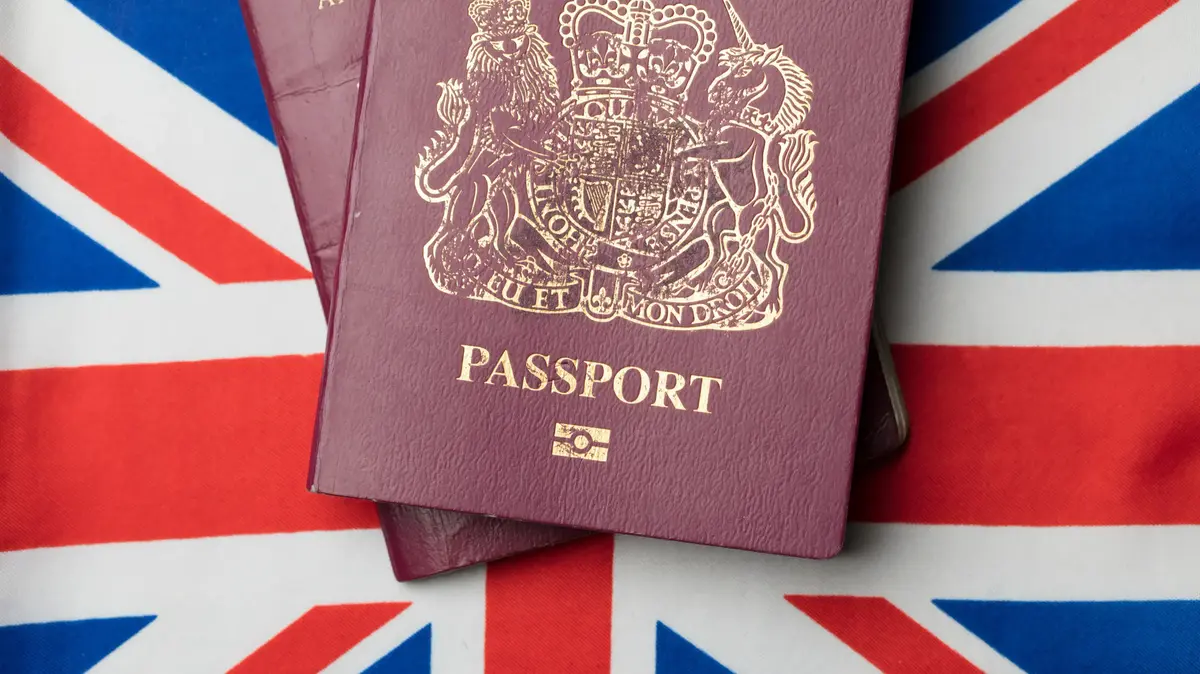On video: funeral ceremony at St. George's Chapel (Photo: Reuters)
Many Israelis have been taking out European passports in recent years, for a variety of reasons: thoughts of moving, free academic studies for children, standing in a shortened line at the entrance to continental countries and "it's always good to have it".
Although Britain no longer belongs to the European Union, if you were thinking about moving to one of the countries of the United Kingdom (England, Scotland, Wales and Northern Ireland), know that the candidates must pass an American test of questions about life in the Kingdom, its history and the way of life there.
However, claims have been made in Britain that the test is so difficult that even the British will have difficulty passing it.
Last year the Lords Committee claimed that the level of the test should be reviewed urgently.
The Home Secretary, Simon Murray, promised to check the level of difficulty of the test by this June.
So if you're going to apply for British citizenship, you'll have to pay £50 to take the test and answer 75 percent of the questions. Think you'll be able to answer the questions in it? Come and try.
Can you get a British passport?
It also depends on your knowledge of the United Kingdom (Photo: ShutterStock)
1. Which of Shakespeare's plays contains the line "To be or not to be?"
A.
Romeo and Juliet
b.
Henry V
c.
Macbeth
d.
Hamlet
More in Walla!
The treatment that prolongs the lives of lung cancer patients
In collaboration with the Israeli lung cancer association
2. In what year was Great Britain founded?
A.
1677
b.
1687
c.
1697
d.
1707
3. In World War II, the Allies fought in the Axis countries.
Which of the following countries was not an Axis country?
A.
Italy
b.
Hungary
c.
Japan
d.
Germany
William Shakespeare (Photo: AP)
4. Many of Charles I's members of Parliament belonged to a Christian group that advocated strict and simple religious doctrine.
What were they called?
A.
Presbyterians
b.
Methodists
c.
Baptists
d.
puritans
5. When did people start farming in Britain?
A.
About 7,000 years ago
b.
about 6,000 years ago
c.
about 4,000 years ago
d.
about 5,000 years ago
6. What was the biggest source of employment in Britain before the Industrial Revolution?
A.
Coal mining
b.
Metal processing
c.
Agriculture
d.
Cotton production
7. What happened after the May 2010 general election?
A.
The Labor and Liberal Democrat parties formed a coalition government
b.
The Conservative and Labor parties formed a coalition government
c.
The conservative and liberal-democratic parties formed a coalition government
d.
The Conservative Party won the majority
The British Parliament (Photo: Reuters)
8. What happened in 1400?
A.
England lost the Hundred Years' War
b.
The Romans invaded England
c.
English replaced the old French language in Parliament and the royal courts in England
d.
The Battle of Hastings
9. In what battle did the Scots defeat the English in 1314?
A.
The Battle of Caernarfon
b.
The Battle of Rodlan
c.
The Battle of Bannockburn
d.
The Battle of Conway
10. What was the name of the first prime minister?
A.
Sir Francis Drake
b.
Robert Walpole
c. Oliver Cromwell
d.
Charles Edward Stewart
The Palace of Westminster, known as the House of Parliament (Photo: ShutterStock)
11. What time do the pubs usually open from Monday to Saturday?
A.
10 in the morning
b.
11 in the morning
c.
12 noon
d.
1 pm
12. Which of these expressions does not come from cricket?
A.
'hit on a sticky goal'
b.
'Game stopped because of the rain'
c.
'hole in one'
d.
'hit straight with the bat'
13. In which two months can Diwali (Hindu holiday) take place?
A.
The month of April or May
b.
September or October
c.
May or June
d.
October or November
What time do the pubs in England open? (Photo: ShutterStock)
14. Which of these statements about the European Union is false?
A.
It was founded by six countries in Western Europe
.
It was founded by the countries that signed the Treaty of Rome in 1957
c.
It has 18 member states
d.
EU law is legally binding in the UK
15. What is the capital city of Scotland?
A.
London
b.
Edinburgh
c.
Cardiff
d.
Belfast
16. Which of these pertains to criminal law, not civil law?
A.
Labor Law
b.
Drinking in an alcohol-free zone
c.
debt
d.
housing laws
The European Union (Photo: ShutterStock)
17. Civil servants must belong to a political party
A.
true
b.
a lie
18. When do young people get their National Insurance number?
A.
before their 15th birthday
b.
before their 17th birthday
c.
before their 18th birthday
d.
before their 16th birthday
19. A free press means that what is written in the newspaper is not controlled by the government
A.
true
b.
a lie
The British Telegraph (Photo: GettyImages, AFP)
20. MPs from the second largest party form their own cabinet.
what is it called
A.
The opposite cabinet
b.
The Shadow Cabinet
c.
The secondary cabinet
d.
Deputy Cabinet
21. What do young children believe that "Father Christmas" (British Santa) brings them the night before Christmas?
A.
gift
b.
Christmas tree
c.
sweets
d.
Pies
22. In which country of the kingdom is the village of John O'Groats?
A.
Ireland
b.
Wales
c.
England
d.
Scotland
23. What is the name of the Paralympic sprinter who won the London Marathon six times and holds 16 Paralympic medals?
A.
David Weir
b.
Sir Chris Hoy
c.
Kelly Holmes
d.
Baroness Tani Grey-Thompson
24. What was the name of the 1833 law that abolished slavery throughout the British Empire?
A.
Emancipation Law
b.
Freedom Law
c.
The Law of Rights
d.
The law of cancellation
answers
1. D - Hamlet
2. D - 1707
3. B - Hungary
4. D - Puritans
5. B - About 6,000 years ago
6. C - Agriculture
7. C - The Conservative and Liberal Democrat parties formed a coalition government
8. C - English replaced Norman French in Parliament and the Royal Court in England
9. C - The Battle of Bannockburn
10. B - Robert Walpole
11. B 11 am
12. C "Hole in one"
13. D - October or November
14. C - There are 18 member states
15 B - Edinburgh
16. B - Drinking in an alcohol-free zone
17. False
18. D - Before their 16th birthday
19. True
20. B - The Shadow Cabinet
21. A - A gift
22. D - Scotland
23. D - Baroness Tani Gray-Thompson
24. A - Emancipation Law
tourism
Travels in the world
Europe
England
Tags
UK
quiz
England
citizenship








/cloudfront-eu-central-1.images.arcpublishing.com/prisa/S7ERVSCT4FUVX6R7TUVBDNTH5Y.jpg)



